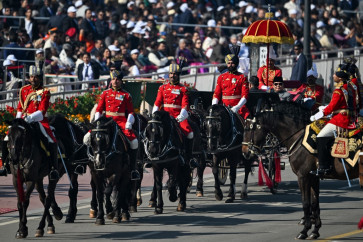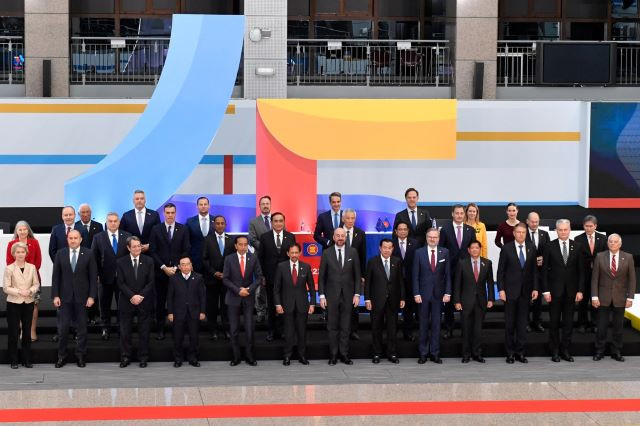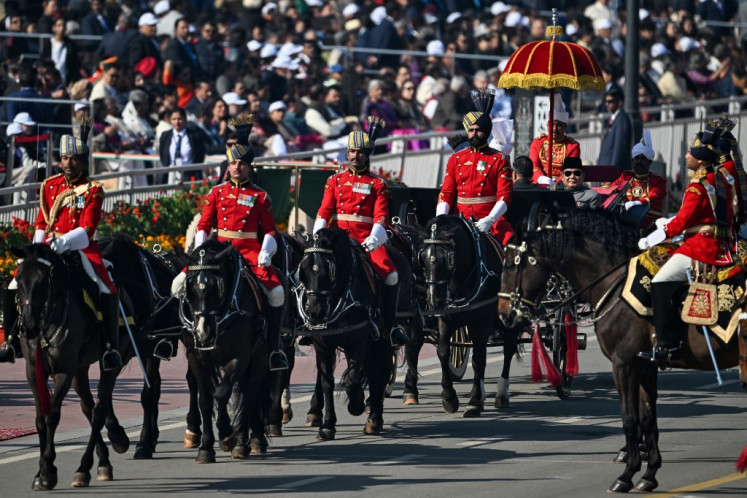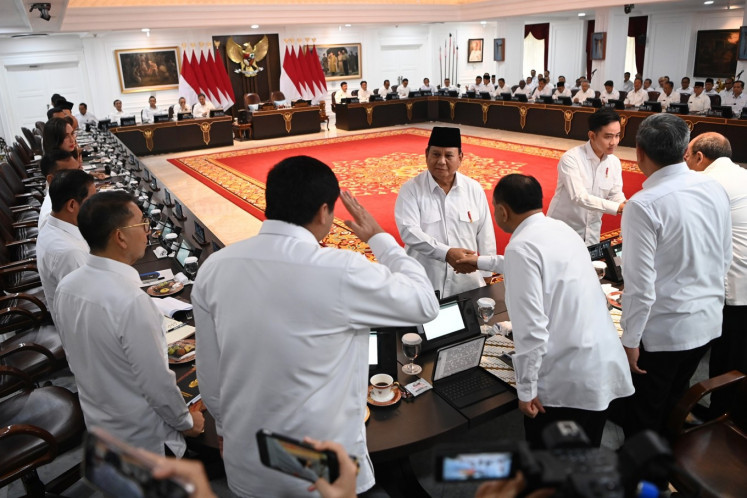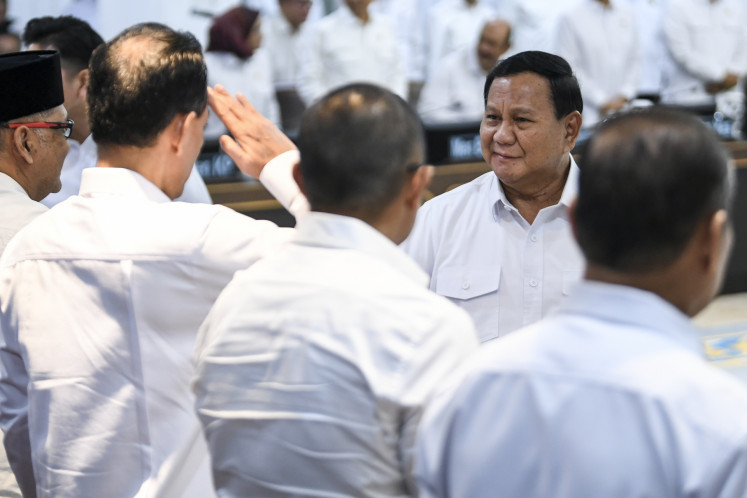Man behind the gun
One of the primary drivers of Indonesia's growing gun violence is the culture of impunity within its military and police forces.
Change text size
Gift Premium Articles
to Anyone
 Civil society activists and university students hold banners that read “Police reform“ (left) and “People's killer” during a protest in front of the Central Java Police in Semarang on Nov. 28, 2024. (Antara/Aji Styawan)
Civil society activists and university students hold banners that read “Police reform“ (left) and “People's killer” during a protest in front of the Central Java Police in Semarang on Nov. 28, 2024. (Antara/Aji Styawan)
For a country that makes it quite hard for its citizens to bear arms, Indonesia has a notable gun violence problem.
Recent incidents, such as the fatal shooting of a civilian on the Tangerang-Merak toll road earlier this month, underscore the pressing need to reevaluate gun restrictions.
This latest tragedy, involving a Navy officer allegedly misusing his firearm, cost the life of 48-year-old car rental business owner Ilyas Abdurrahman.
It is also unacceptable that a commanding naval officer condoned the violence by chalking it up to a fight or flight response. “Kill or be killed” is reserved for wartime, and guns are certainly not a tool to fight alleged fraud.
And yet the officer in question looks likely to sidestep a fair trial, as his superiors claim he is under the jurisdiction of military court.
Another case, from November 2024, involves the death of Beni, 45, a villager in Bangka Belitung province who was gunned down by a member of the National Police’s Mobile Brigade (Brimob) for allegedly stealing oil palm fruit from a privately owned plantation.
Both cases are emblematic of a broader crisis that undermines trust in state institutions and threatens public safety. We have to look at the man behind the gun.
One of the primary drivers of the recent wave of gun violence is the culture of impunity in the country’s military and police. Numerous cases over the years, such as the Mimika mutilation case in Papua, the framed murder scandal involving senior cop Ferdy Sambo in Jakarta and other high-profile incidents, highlight repeated failures to hold perpetrators accountable.
When security personnel act without fear of consequences, it not only perpetuates violence but also erodes people’s trust in the institutions meant to protect them. Transparency in investigations and strict enforcement of disciplinary measures are nonnegotiable if Indonesia is to restore faith in its security apparatus.
Reforming firearm protocols and improving oversight mechanisms are crucial steps to curbing gun violence. Currently, the processes governing firearm issuance and use are riddled with holes, allowing for their misuse and abuse.
The glaring absence of oversight measures in a 2022 National Police regulation on firearm permits, which also governs the use of non-standard-issue weapons by police and military personnel, must be updated immediately.
Security forces must also undergo rigorous training on firearm use and conflict de-escalation, coupled with regular evaluations to ensure compliance. As a fail-safe, the government must ensure accountability beyond internal reviews.
The impact of gun violence extends far beyond its immediate victims. A climate of fear and insecurity hinders economic growth, deters investment and damages Indonesia’s reputation as a stable democracy. For instance, regions such as Papua, for decades plagued by violence involving security forces, have faced developmental setbacks.
It almost doesn’t matter that as of 2019, Indonesia ranked fourth in Southeast Asia for gun-related deaths, with 439 incidents compared to the Philippines’ 9,268 deaths, according to data from the World Population Review.
It is worth acknowledging that Southeast Asia’s militarized governance models and weak firearm controls have exacerbated violence across the region, with Thailand and Myanmar also providing cautionary tales.
Indonesia, as a regional leader, has an opportunity to set an example by prioritizing human rights and demonstrating that accountability and justice are not negotiable in democratic governance.
Addressing gun violence requires a multi-stakeholder approach. To address its root causes, Indonesia must strengthen internal disciplinary mechanisms within security forces, enhance civilian oversight through independent bodies and whistleblower protections, introduce stricter firearm control laws and provide security personnel with training in conflict resolution and community engagement.
Ultimately, reducing gun violence is not merely a policy challenge but a moral imperative. Every life lost to firearm misuse is a stark reminder of the state’s failure to fulfill its primary duty: protecting its citizens.
Now is the moment for bold leadership and collective action, before more lives are needlessly lost and public trust is further eroded.




